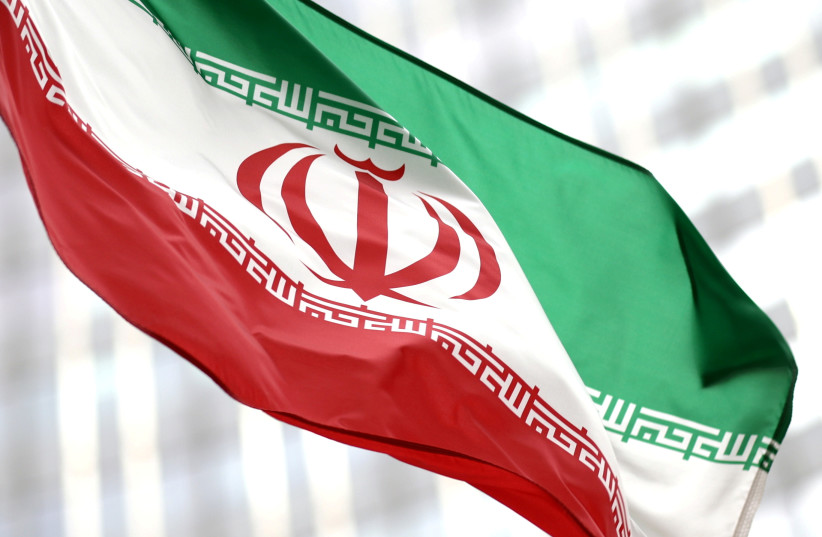Iran could burn up in 30 years — and not from a nuclear meltdown
The Iranian people are burning up, and not because of a nuclear meltdown.
The culprit? Climate change – and the situation is unlikely to change anytime soon.
This summer, a significant portion of the global population has been exposed to extreme temperatures. According to the Copernicus Climate Change Service, July was the hottest month recorded worldwide, with intense heat waves sweeping across vast regions of Europe.
While many might assume that California’s Death Valley is the hottest location on Earth, the area with the highest land surface temperature resides in Iran’s uninhabitable Lut Desert, said Dr. Amir Givati of Tel Aviv University’s Department of Environmental Studies.
This remote desert region registered a peak of 70.5 degrees Celsius in 2005.
 Iranian flag flies in front of the UN office building. (credit: LISI NIESNER/ REUTERS)
Iranian flag flies in front of the UN office building. (credit: LISI NIESNER/ REUTERS)Why are temperatures in Iran rising to such a dangerous extent?
The scorching conditions aren’t confined solely to the desert landscape. Just last week, Iranians experienced an “unprecedented heat” event that prompted a nationwide holiday, as described by Iranian state media. Southern Iran bore the brunt of this extreme heat, with temperatures soaring past 51 degrees Celsius.
Adding to these concerning trends, Sahar Tajbakhsh, the head of Iran’s Meteorological Organization, said that the country’s temperatures are escalating twice as fast as the global average. This unsettling rise contrasts starkly with a distressing decline in rainfall.
Tajbakhsh shared her insights with the Iranian Students’ News Agency (ISNA), and the Iran International website later disseminated them.
A study published by Lancet Planet Health in April evaluated the effect of global warming on the Middle East and North African (MENA) region, finding that “Iran has more than 1,700 heat-related death per year and is the most vulnerable MENA country per capita, with an estimated 11 deaths per 100,000 people per year.”
“Iran has more than 1,700 heat-related death per year and is the most vulnerable MENA country per capita, with an estimated 11 deaths per 100,000 people per year.”
Lancet study
The number is not only five times the average of the Middle East (2.1 per 100,000), but the researchers estimated that it could reach 423 death per 100,000 by 2060.
Today, Egypt has the highest absolute number of heat-related deaths in the Middle East at 2,591 per year. Israel has 218.
The Lancet report added that “maximum daily air temperatures in MENA could reach almost 50 degrees Celsius by the end of the century if greenhouse gas emissions remain high globally” and that the region could expect an average of 123 heat-related deaths per 100,000 people per year by 2060.
“Places like Iran are demonstrating in the best way possible the results of the climate crisis,” Givati said. “Iran is a big country without infrastructure. People do not have water when it is hit with such high heat. The rivers dry up, and there is extensive damage to the country’s agriculture.”
He said that for Iran, climate change is a “huge crisis” because the government has not taken the necessary steps to adapt. “Iran is a warm place every summer. But what has been happening in the last two to three years has been dramatic for the country. It is an emergency.”
Iran remains the top emitter of greenhouse gases in the Middle East – 926 million tons were emitted in 2018, compared to 750 million tons in Saudi Arabia or 579 million in Turkey, according to the United Nations Environment Program.
Given the ongoing economic crisis the Islamic Republic faces and its lack of commitment to investing in renewable energy, the likelihood of the situation improving remains minimal.
By 2050, it will become very difficult to live in Iran, wrote Banafsheh Keynoush in a report for the Middle East Institute (MEI) in January.
“Some 70% of the population — or nearly 50 million Iranians — might be ultimately forced to leave the country to survive.”





Comments are closed.